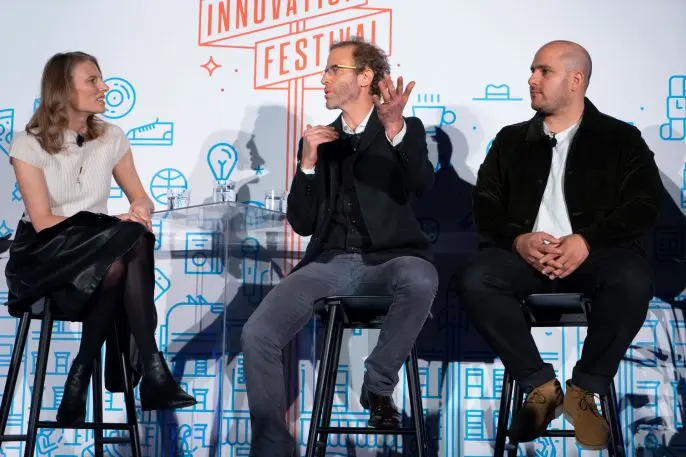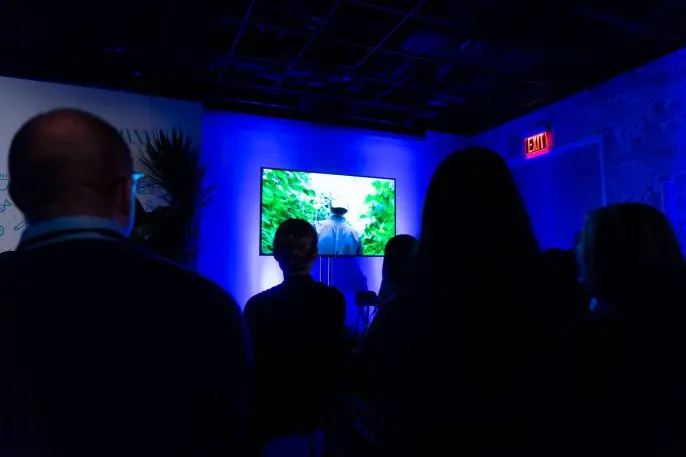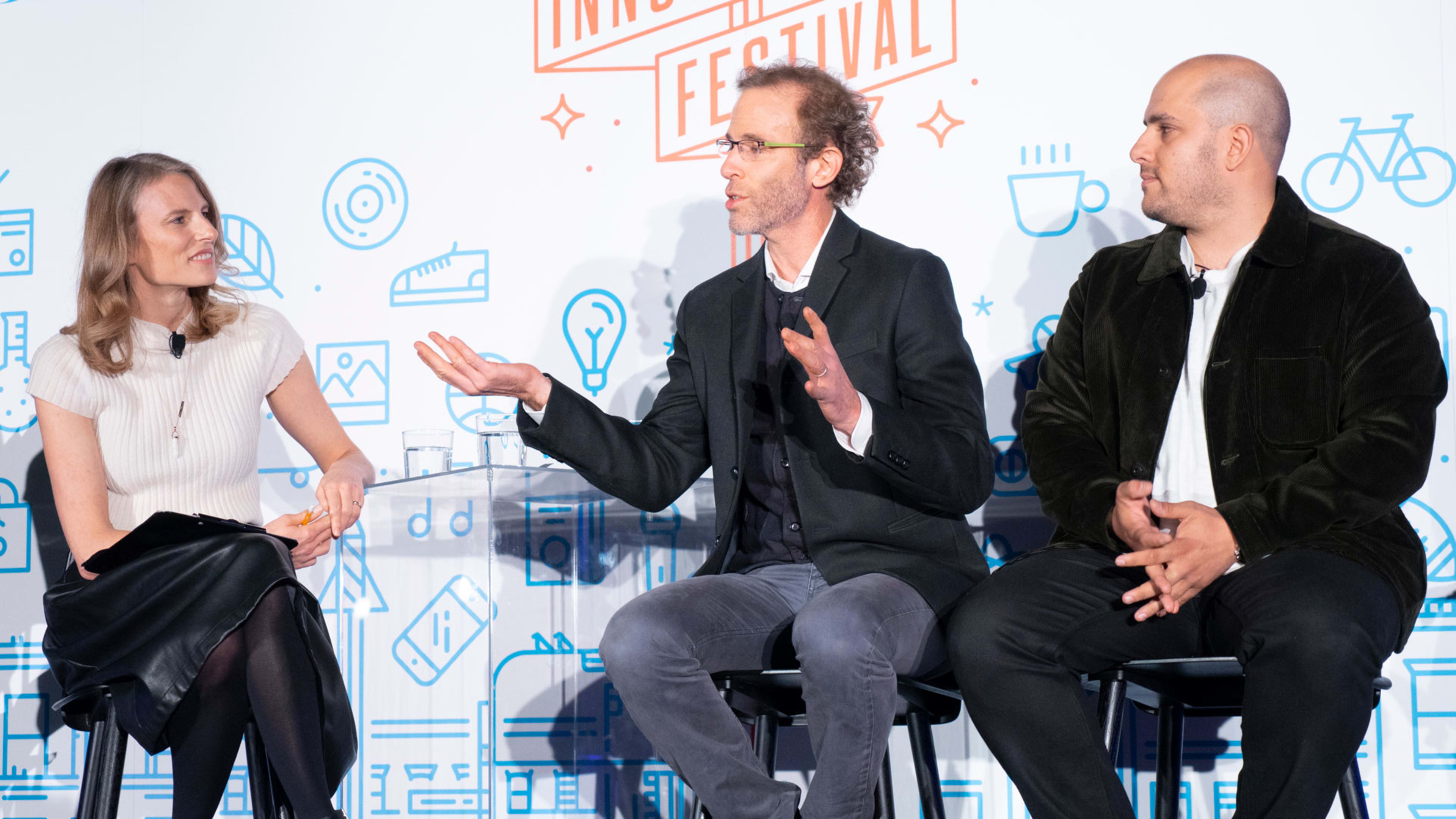Blue Hill chef and co-owner Dan Barber was recently asked about his views on the U.N.’s 2018 climate change report–and its recommendation that we need to reduce our meat consumption by drastic numbers to save the environment. His response? “I don’t buy it.”
Speaking at the Fast Company Innovation Festival this week, Barber stressed that the problem isn’t necessarily how much meat we’re eating, but the fact that we eat so much meat from cows that are fed with soy and grain. “If you have a cow and put it on a grass-fed diet, you have a delicious burger, [and you also] cut down on carbon emission.”


Making healthy foods craveable
Jammet’s ultimate mission, he told the audience, “is to connect people with real food . . . I knew we needed to look at how food was grown, how it was talked about. We’ve been very inspired by a lot of the work that Dan has been doing. Rethinking the whole supply chain to how something is grown, [and] breeding seeds and vegetables for flavor. We want to make food just as craveable as processed food. That comes down to the flavor.”
Jammet went on to say that the days of where people feel like they need to eat healthy food because they should is over. “Ten years ago, it was cool for people to walk down the street with fast food. A lot of that is how you talk about food, [and] that changes that relationship,” he continued. His goal is to create the same hype and excitement around a new vegetable the way that Adidas and Nike create hype and excitement around their shoes– by doing a “squash drop.”

Both believe that agricultural subsidies and production costs are two of the biggest barriers to scaling and making healthy food accessible in the U.S. Barber told the audience, “It’s a David and Goliath story. We subsidize the feed, we subsidize the farm. The question for all of us, and I ask this all the time is, How do you fight this? I’ll just say that you don’t want to fight that. I don’t know if I have the tools of the toolbox to fight that. What I do have is the imagination of the cohort of millennials who are excited, hedonistic for the flavor of [good food.]”
Ultimately, Barber is optimistic that greed and hedonism can be a force for good, particularly when it comes to changing the food industry. “That’s one thing America is really good at. The thing is, we have no food culture that makes us more likely to be hedonistic and greedy, and we excel at that.”
Correction: This article has been updated to clarify that Michael Mazourek is the breeder of the Koginut squash.
Recognize your brand’s excellence by applying to this year’s Brands That Matter Awards before the early-rate deadline, May 3.
